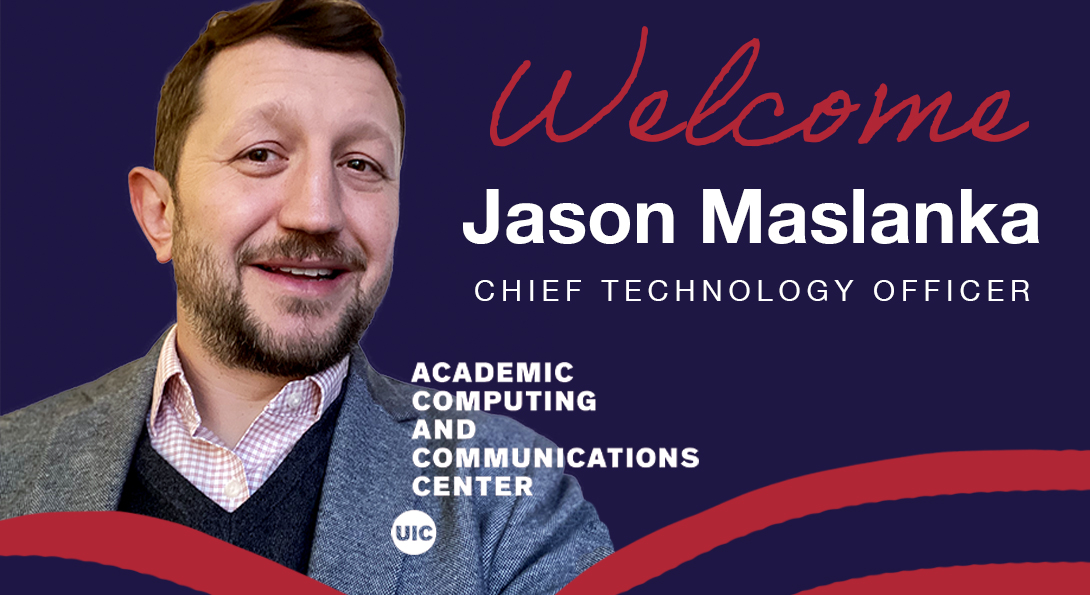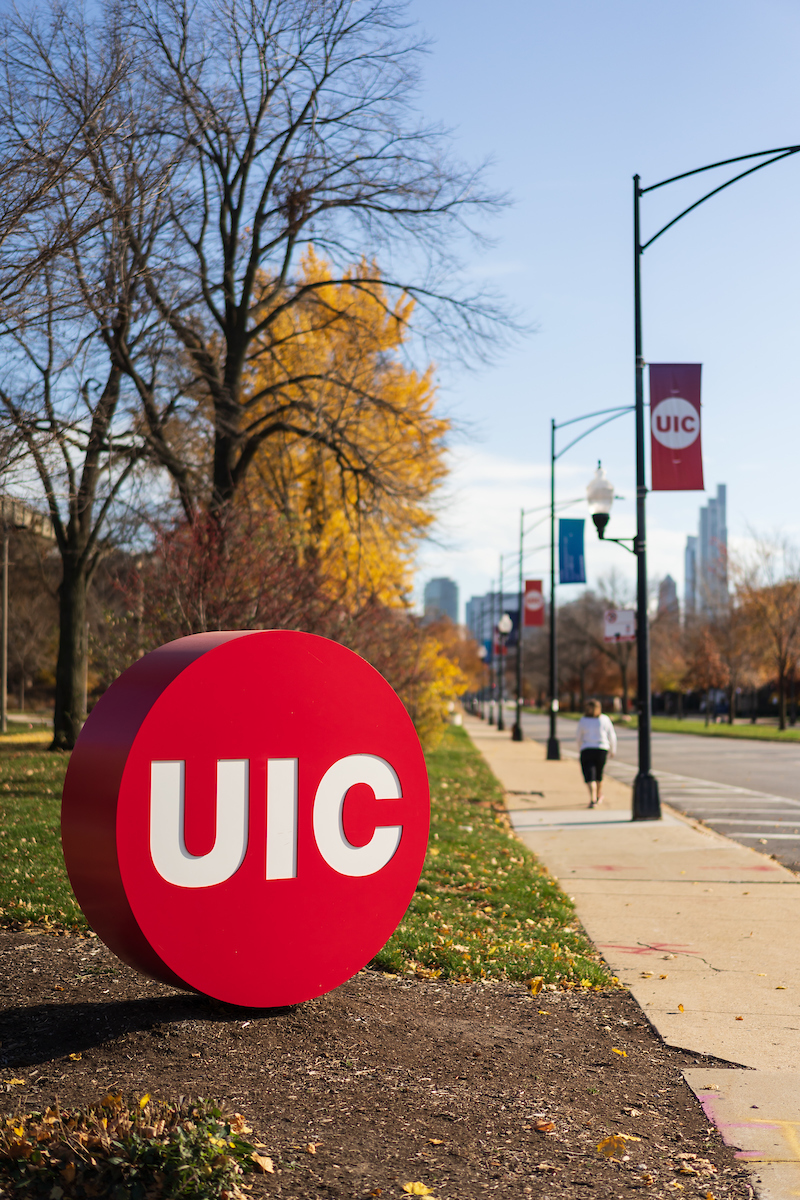A Talk with UIC’s New Chief Technology Officer: Jason Maslanka

Introduction
Newly appointed UIC Chief Technology Officer Jason Maslanka [UIC (BA), DePaul University (MA), and Illinois (MBA - 2020)] is excited to take the lead on bringing innovative IT solutions to campus.
Title
Having spent 17 years working at UIC, Jason led information technology and marketing operations as Executive Director of Digital in Student Affairs, where he also created an internal marketing agency serving the division and other campus units, successfully enhancing creative services and revenues.
UIC’s new CTO says he owes his success in the field of technology to his mom, for buying him an Apple IIc when he was four years old. Passionate about driving innovative technology solutions that support UIC’s core mission and goals, Jason brings a sophisticated IT lens to planning, operations, and management.
We asked Jason about his experience and what he looks forward to bringing UIC as CTO.
We have a lot of work ahead of us and I sincerely believe it will be meaningful and fun…the work we do directly and significantly affects the strategic priorities of this institution, an institution that performs critical research, empowers communities around it…provides healthcare to the city, and so much more.
Q1

How have you seen UIC change in the 17 years you have worked here?
The most significant change I have seen at UIC in general is the professionalization of our departments. The way we do business and the services we provide are more mature. We’ve taken cues from the outside world. We’ve diversified the workforce to a more modern one. We are dedicated to serving our students, faculty and staff by working together.
In the past, there was a lot of separation between units. We talk about silos a lot but I think the campus in general has done a terrific job of breaking those down. At the very least, that’s now seen as something out of the ordinary as opposed to something that’s expected.
The way we talk about ourselves has changed as well. We had a fairly negative view of the institution in the past, and I think most people these days have a positive view of what this institution means to students, to Chicago, and to the country.
I think there has been a notable shift since Chancellor Armiridis joined us. We did more to modernize and change the campus and serve students, and we really started to identify ourselves as an important entity throughout the country.
Nowadays, the number of students wearing something that has a UIC logo on it is noticeable. That was borderline non-existent 17 years ago. Today we see students engaged in something that makes them show their pride in being part of the UIC community.
Today we see students engaged in something that makes them show their pride in being part of the UIC community.
Q2
You have taken on a new role in strange times. That can be very challenging but also very exciting and motivating. What would you say is your top priority as UIC’s CTO?
Firstly, we have an opportunity to set a path for what our tech infrastructure looks like in the future, including storage, networks, data centers, etc.
That strategy to get there will be complicated and difficult, but it’s absolutely paramount in setting up the IT infrastructure to be a driver of innovation and change and all the things that we want it to be.
Secondly, to achieve this, we must set up ACCC to be able to not only help strategize what that future state looks like but also to be able to enact it. That includes engaging and collaborating with our peers. It’s about structure and collaboration. It’s thinking about what the next 10 years look like at this institution, and how we support the things that we care about.
Q3
How do you plan on identifying and better understanding the IT needs of the UIC community?
I will never take my role in coming up with solutions lightly. I read, learn and talk to people. It’s a pretty significant responsibility of this role to help lead discussions that will bring change.
I intend on having as open of a door as possible and offer opportunities for stakeholders to bring even the wildest of ideas, prioritize, and make them a reality.
We are also a big enough university that we do need to follow some processes, and supporting governance and proper organization is important in helping us move some of these things forward.